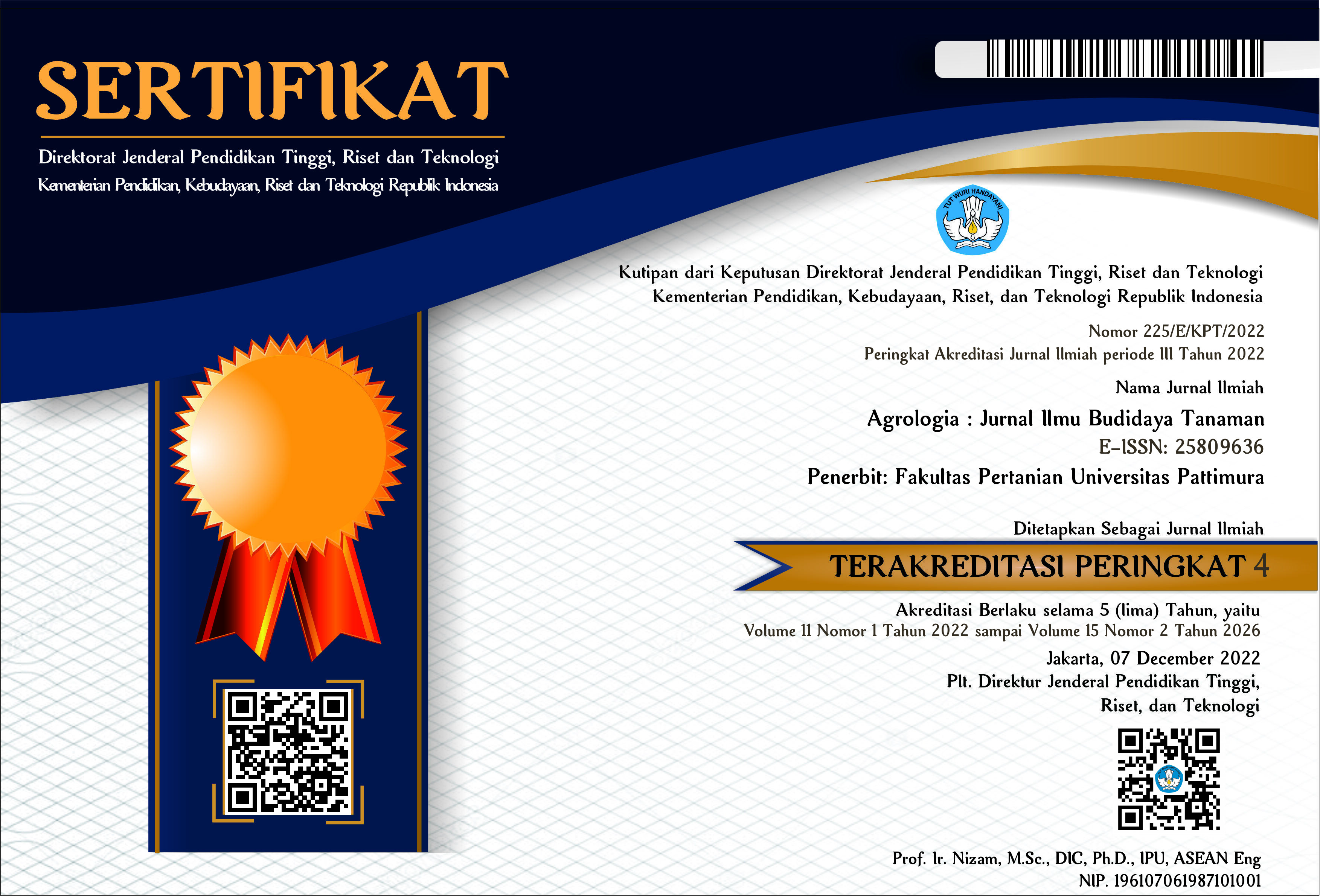Respons Pertumbuhan Vegetatif Jagung Di Tailing Tambang Timah Terkontaminasi Kadmium Setelah Inokulasi Bakteri Indogenus
Abstract
Contaminant levels of cadmium (Cd) in tin mine tailings often exceeds the upper limit. Relatively high Cd content might decrease crop yields and threatened food chain. Bioremediation by using indigenous microbes to lower soil Cd shoud be done prior to use tailings for cultivation. The objective of this experiment was to obtain information about the capacity of indigenous bacterias to induce bacterial proliferation in the rhizosphere, corn growth during the early vegetative stage and change the concentration of Cd in soil and plants. Pot experiment was set up in a Randomized Block Design consist of several combination of two bacterial isolates and their doses. Maize seeds were sown in tailings from the mine site on the island of Bangka and inoculated with indigenous bacteria. The results showed that the bacterial inoculation increased number of bacteria in the rhizosphere and plant height, but only isolates BKH1 with a dose of 5 mL/plants that increased plant dry weight. Soil Cd content decreased when inoculated by bacteria although not statistically significant, while the effect of inoculation on plant Cd uptake was inconsistent.
Full Text:
PDFDOI: http://dx.doi.org/10.30598/a.v4i1.211
Refbacks
- There are currently no refbacks.











